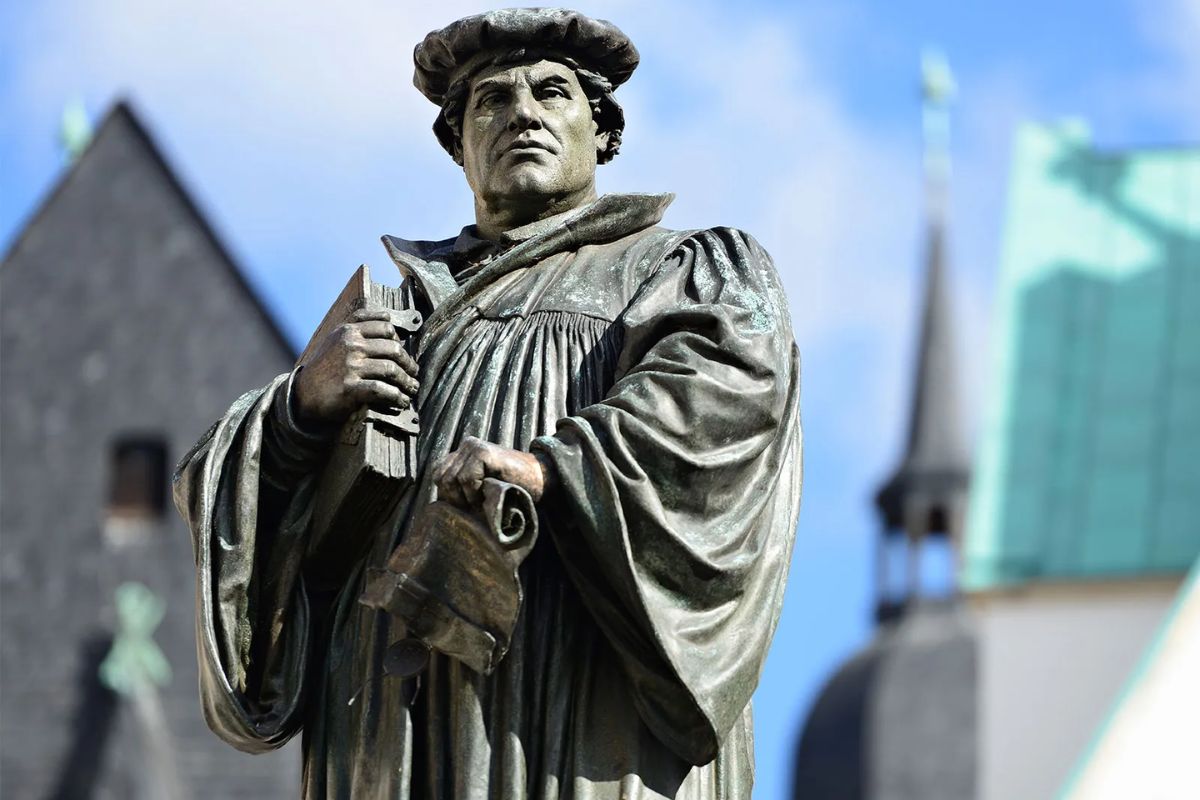
Reformation Day marks a pivotal moment in history when Martin Luther nailed his 95 Theses to the church door in Wittenberg on October 31, 1517. This act sparked the Protestant Reformation, which led to significant changes in the Christian church and European society. But why is Reformation Day important today? It reminds us of the power of questioning authority and seeking truth. Celebrated mainly in Protestant communities, this day honors the courage to challenge the status quo. From religious reforms to cultural shifts, the impact of Reformation Day is still felt centuries later. Let's dive into 25 intriguing facts about this historic day.
What is Reformation Day?
Reformation Day marks a pivotal moment in history when Martin Luther nailed his 95 Theses to the door of the Wittenberg Castle Church. This act sparked the Protestant Reformation, changing the course of Christianity and European history.
- Reformation Day is celebrated on October 31st each year.
- Martin Luther's 95 Theses criticized the Catholic Church's sale of indulgences.
- The event took place in 1517 in Wittenberg, Germany.
- Luther's actions led to the formation of Protestant denominations.
The Impact of Reformation Day
The Reformation had far-reaching effects on religion, politics, and society. It challenged the authority of the Catholic Church and led to significant changes in Europe.
- The Reformation promoted the idea of "sola scriptura," meaning scripture alone is the authority.
- It encouraged the translation of the Bible into vernacular languages.
- The movement led to the establishment of Protestant churches.
- It influenced the development of modern democracy by promoting individual conscience and freedom.
Key Figures of the Reformation
While Martin Luther is the most well-known figure, several other key individuals played crucial roles in the Reformation.
- John Calvin was a French theologian who developed the doctrine of predestination.
- Huldrych Zwingli was a Swiss reformer who promoted a more radical break from Catholic traditions.
- John Knox brought Reformation ideas to Scotland, founding the Presbyterian Church.
- Philipp Melanchthon, a close associate of Luther, helped systematize Lutheran theology.
Cultural and Social Changes
The Reformation brought about significant cultural and social changes, affecting everything from education to family life.
- The Reformation emphasized the importance of education for all, leading to the establishment of schools.
- It promoted literacy as people were encouraged to read the Bible.
- The movement challenged traditional gender roles, with some women gaining more influence in religious matters.
- Art and music were transformed, with Protestant hymns becoming popular.
Reformation Day Traditions
Different countries and communities have unique ways of celebrating Reformation Day, reflecting their cultural heritage and religious beliefs.
- In Germany, Reformation Day is a public holiday in several states.
- Some churches hold special services and reenactments of Luther's nailing of the 95 Theses.
- In the United States, some Protestant communities celebrate with educational events and discussions.
- Reformation Day is often seen as an alternative to Halloween, focusing on religious history rather than secular festivities.
Modern Relevance of Reformation Day
Even today, Reformation Day holds significance for many people, reminding them of the importance of religious freedom and individual conscience.
- It serves as a reminder of the importance of questioning authority and seeking truth.
- The day encourages reflection on the progress made in religious tolerance and freedom.
- It highlights the ongoing need for reform and renewal within religious institutions.
- Reformation Day inspires people to think critically about their beliefs and practices.
- The legacy of the Reformation continues to influence contemporary discussions on faith, society, and governance.
Why Reformation Day Matters
Reformation Day isn't just a historical event; it's a celebration of change, courage, and faith. Martin Luther's actions on October 31, 1517, sparked a movement that reshaped Christianity and influenced countless aspects of modern society. From religious freedom to the importance of questioning authority, the Reformation's impact is still felt today.
Understanding this day helps us appreciate the value of standing up for one's beliefs and the power of ideas to transform the world. Whether you're religious or not, the lessons from Reformation Day resonate with anyone who values progress and integrity. So next time October 31 rolls around, remember it's not just about costumes and candy. It's also a day to honor a pivotal moment in history that continues to inspire change and reflection.
Was this page helpful?
Our commitment to delivering trustworthy and engaging content is at the heart of what we do. Each fact on our site is contributed by real users like you, bringing a wealth of diverse insights and information. To ensure the highest standards of accuracy and reliability, our dedicated editors meticulously review each submission. This process guarantees that the facts we share are not only fascinating but also credible. Trust in our commitment to quality and authenticity as you explore and learn with us.
